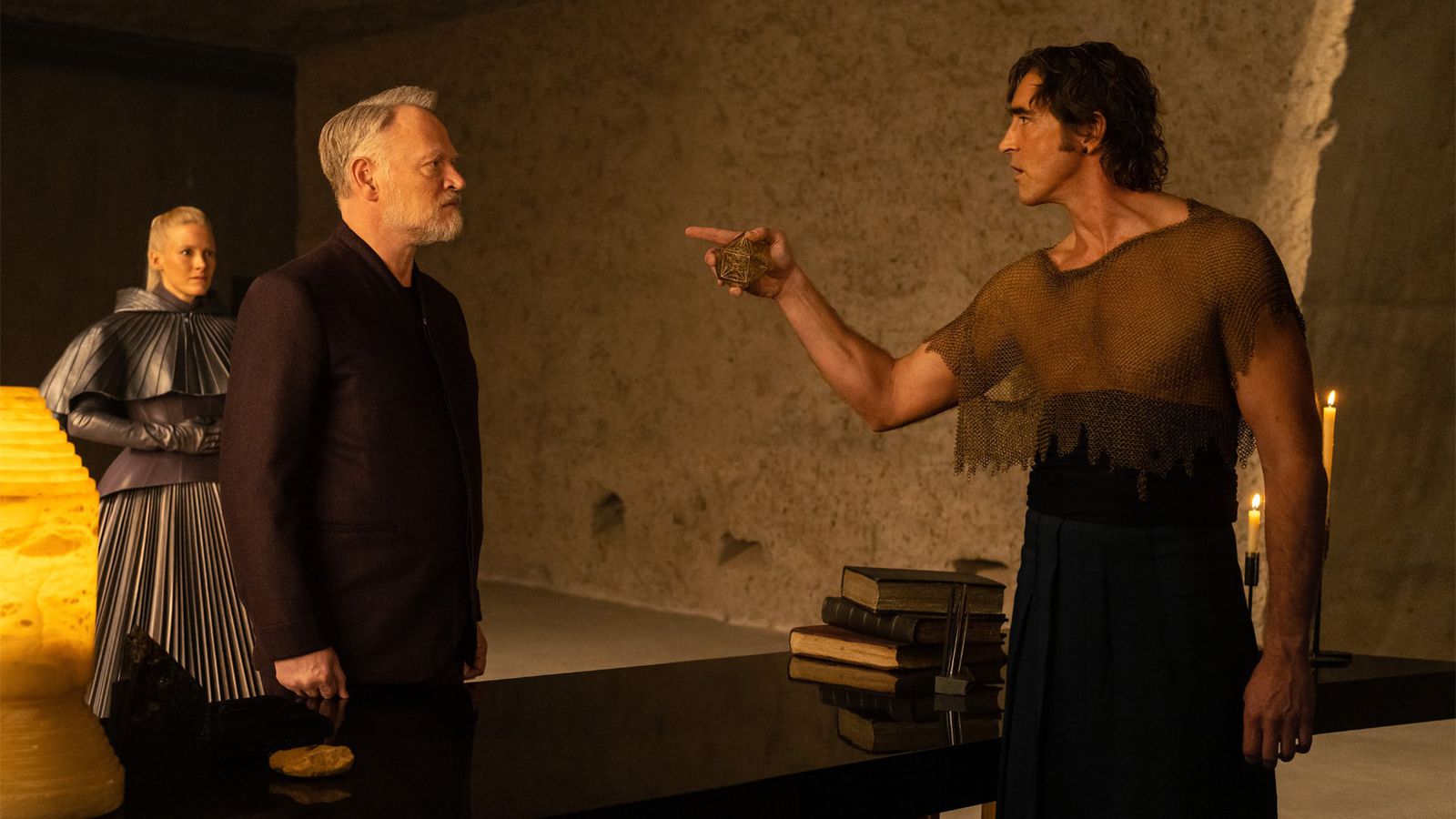
Editor's note: these interviews took place prior to the actors strike beginning on July 14.
David S. Goyer is unequivocal over how he wanted to approach Foundation season 2. The first season of Apple TV Plus’ ambitious sci-fi series was, for lack of a better term, disjointed in its makeup. Given it’s based on Isaac Asimov’s convoluted book series of the same name – novels deemed unfilmable by many observers – the first season’s erratic structure and uneven pacing were to be expected.
With its expansive universe building, and story and character set up, now out of the way, Foundation has room to breathe and, if you pardon the pun, plenty of space to explore. For Goyer, the creative commander of Foundation’s TV adaptation, season 2 can reap the rewards of the aspirational seeds sown in its predecessor.
“I wanted to be more ambitious [with season 2],” Goyer tells TechRadar. “And I was excited because we didn’t have the burden of so much expositional table setting. Now, audiences understand the basic concepts of this universe and story, and that gives us more runway to dig deeper into our characters’ emotional side, as well as actually introduce some levity.”
Star wars
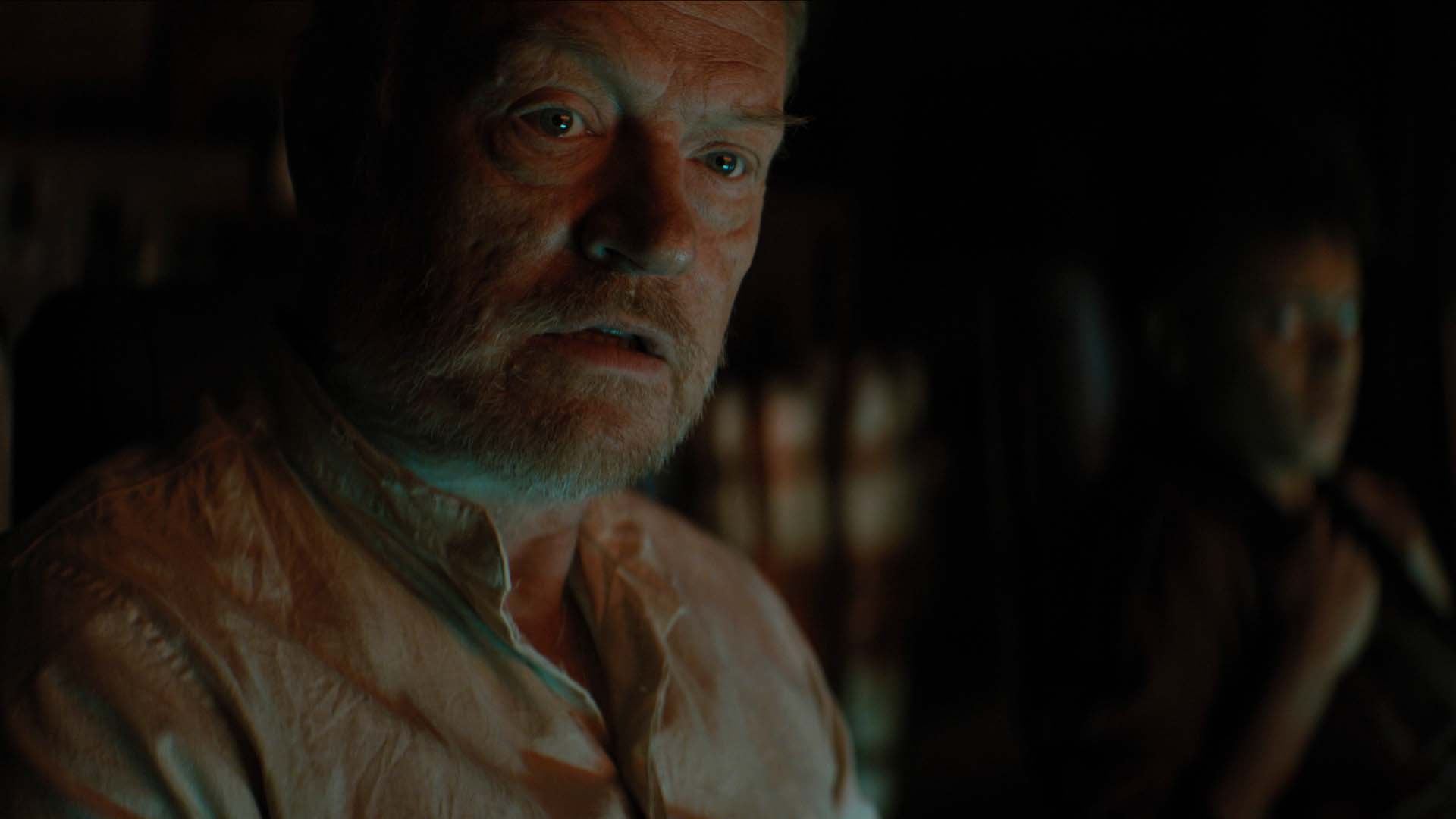
Over a century has passed between the Foundation season 1 finale and the start of season 2. In that time, much has changed in-universe.
For one, thanks to some time travel shenanigans, Gaal Dornick (Lou Llobell), the protégé of brilliant psychohistorian Hari Seldon (Jared Harris), and her biological daughter Salvor Hardin (Leah Harvey) have finally met. The titular Foundation – a supposed repository of human knowledge, which Seldon and his followers founded on Terminus – has thrived and expanded into the outer colonies. A new religion, dubbed the Church of Seldon and led by High Priest Poly Verisof (Kulvinder Ghir), has also risen up to honor the deified scientist.
Meanwhile, on Trantor – the capital of the Galactic Empire – the Cleonic dynasty is slowly unraveling. Season 1’s shock revelation that Brothers Day (Lee Pace), Dawn (Cassian Bilton), and Dusk (Terrence Mann) aren’t genetically identical clones of Cleon I has shaken the trio to their core. Adding to the turbulent atmosphere is Day’s unexpected plan to marry Cloud Dominion’s Queen Sareth (Ella-Rae Smith) and start his own family. With the Foundation seen as a growing threat to the Empire’s tyrannical grip on the galaxy, Day’s desire to initiate a war with Seldon’s rebels – the so-called Second Seldon Crisis – could further ignite an already tense interstellar situation.
Those two sides of Brother day are in absolute conflict
Lee Pace, Foundation actor
It’s the last line of that lengthy plot synopsis that breeds confidence in Foundation’s ability to add some visually arresting, high-stakes action to its skill set. The first season was largely devoid of action spectacles, with a smattering of small-scale skirmishes the best viewers could hope for. With season 2’s official trailer teasing an epic interstellar war, though, Goyer believes audiences will get their thrills’ worth of suspense-worthy, gripping action set-pieces
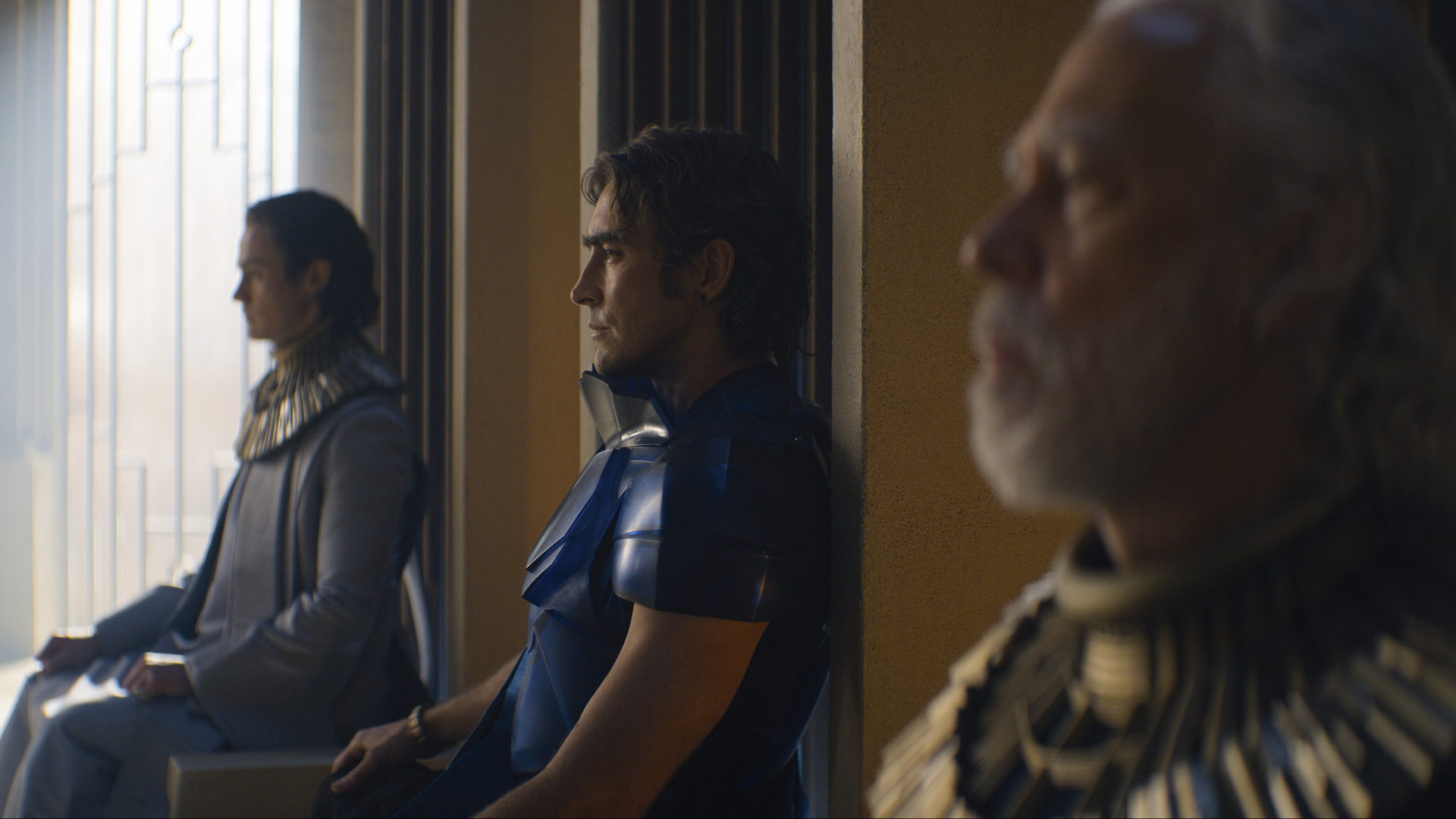
“In some ways, the basic story is simpler than season 1,” he muses. “Essentially, it’s a David versus Goliath story of the Foundation’s war with the Empire. We don’t have a lot of crazy time jumps, so this season takes place in a fairly linear fashion. There’s some traditional flashbacks and flash-forwards. Other than that, it’s a lot more accessible to audiences than the first season.”
Given Foundation’s universe-spanning story and genre terminology, comparisons between it and other popular sci-fi franchises, such as Star Wars and Star Trek, are inevitable. That resemblance will also surely grow when season 2’s large-scale battles take center stage.
However, Goyer is giving no thought to such similarities. Not only did Foundation precede its sci-fi siblings by some distance, but its TV adaptation also foregoes specific technologies that those cultural behemoths have heavily relied upon in recent years. In his words: “We try to steer away from those franchises as much as we can.”
Crises of faith
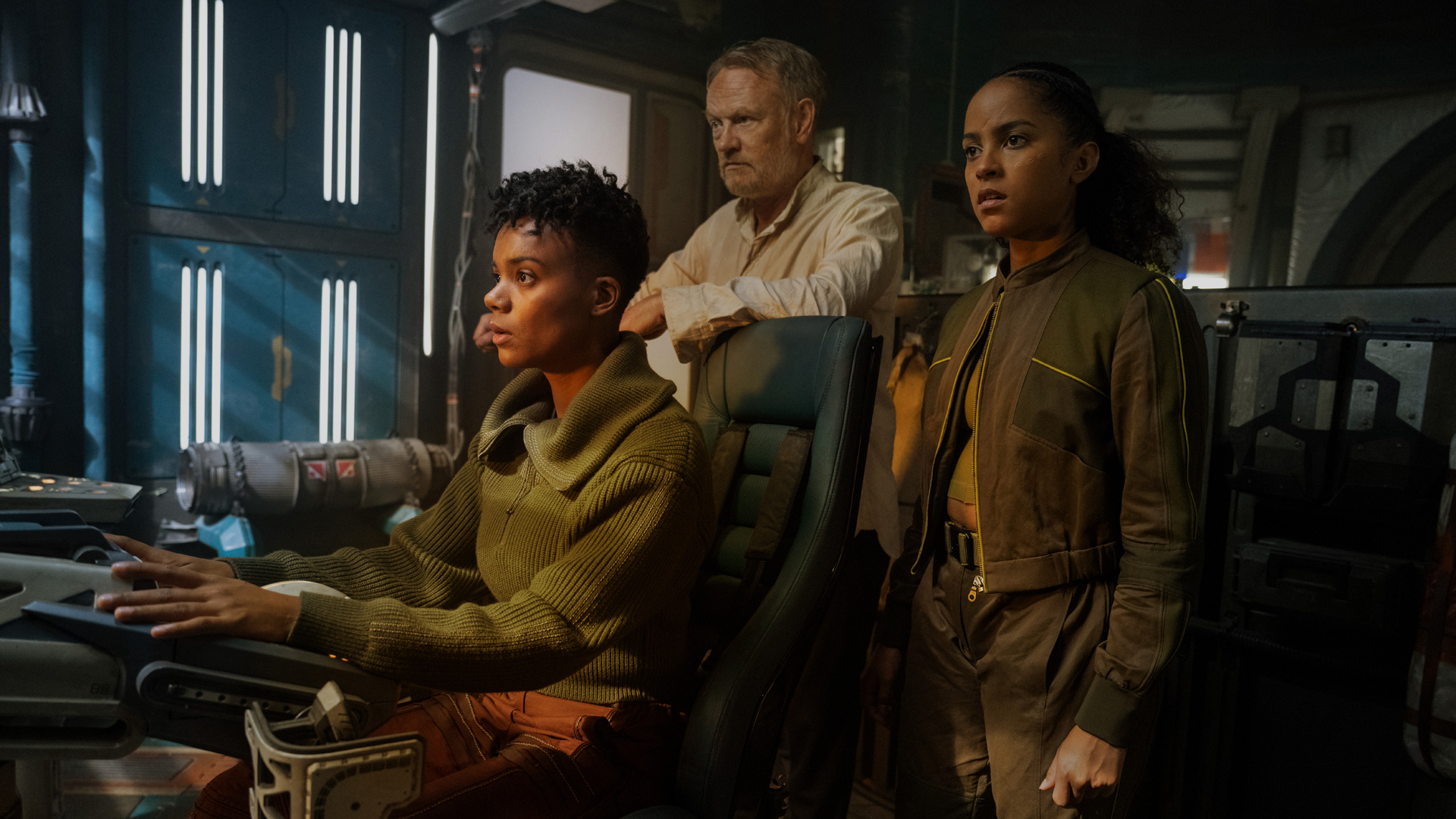
It isn’t just external battles that Foundation’s two sides are gearing up for. Indeed, characters on both sides of the divide are grappling with their own issues and insecurities, which threaten to undermine the collective aims of the Foundation and the Empire.
In the Foundation camp, Gaal’s interference in Hari’s plan early in season 1 has knocked the Foundation’s entire game plan off-course. That’s partly down to Hari’s inclination to keep secrets from Gaal, which drove a sizable wedge between the pair in season 1 and continues to do so in its follow-up. However, Gaal’s actions throughout season 1, though well-intentioned, also contributed to throwing Hari’s plan out of whack. Come season 2, then, the level of mistrust between the duo – or, because Hari died in season 1 episode 2, his digital consciousness – is immediately identifiable.
Essentially, it’s a David versus Goliath story
David S Goyer, Foundation showrunner
“There’s a level of trust that’s been broken,” Harris explains. “Part of that is what happened to Raych [Gaal’s boyfriend] and how Hari involved him in Hari’s death. That’s affecting Gaal’s side of the equation. For Hari, it’s what happened to him in the time between seasons 1 and 2. They need to deal with these serious situations collectively, and only by doing that can they move forward.”
“She’s really pushed Hari to the edge,” Llobell adds. “And he’s done likewise to her. She blames him for the position she’s in, so I think it’s very difficult to come back from that and re-earn that trust. But, as we learn, they don’t have a choice but to work together. It’s very interesting to watch two people interact when they really don’t want to, but the evolution of their journey, from where they start and end, is lovely.”
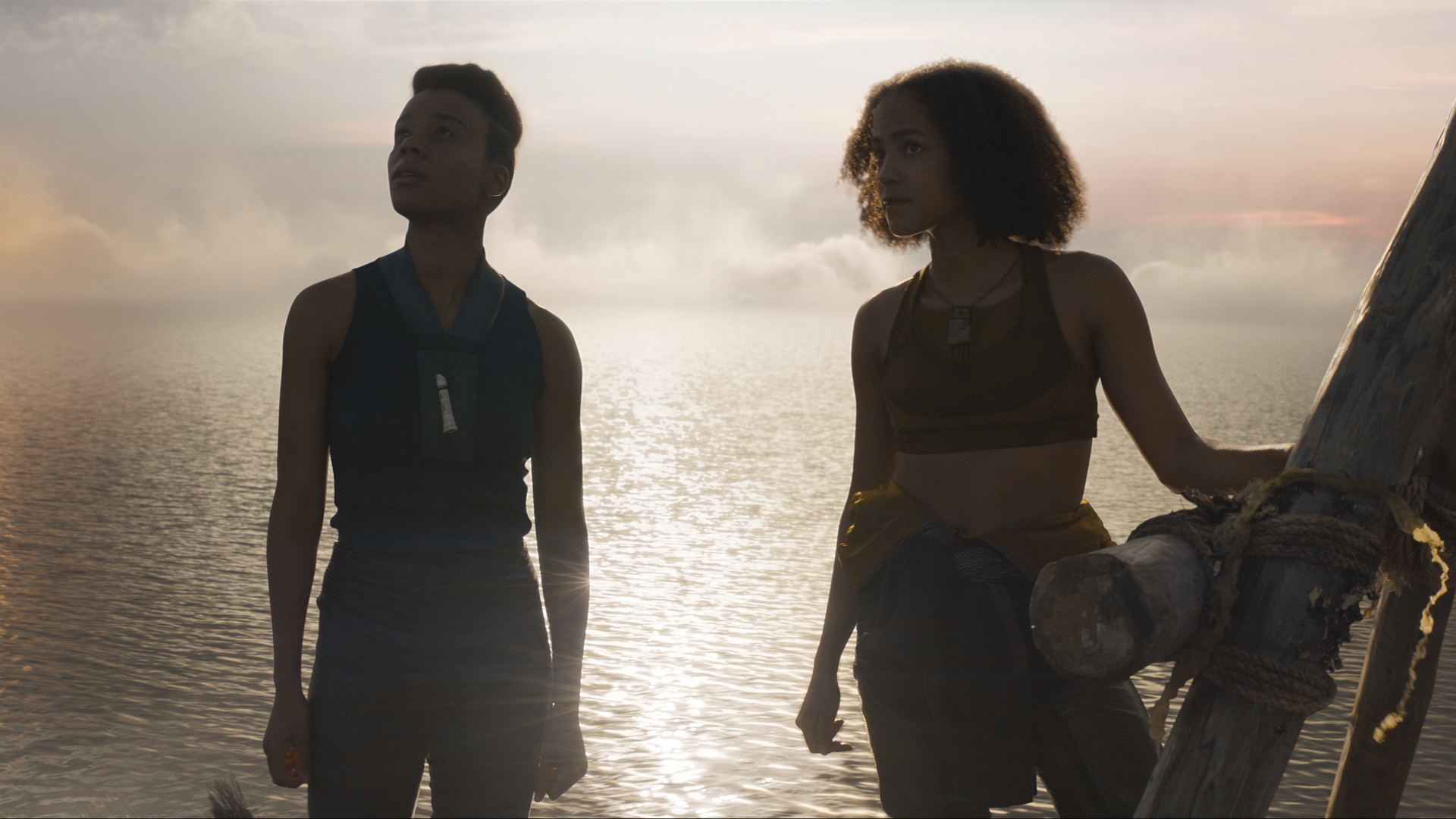
It’s not just her fractious relationship with Hari that Gaal has to deal with. Thanks to some cryosleep-based temporal displacement, Gaal and Salvor finally meet almost 140 years after Gaal initially froze her embryos (one of which grew up to be Salvor) on the Deliverance starship in episode 2. Initially, Gaal and Salvor’s reactions to this chance familial encounter couldn’t be more polarizing. As season 2 progresses, though, they grow into the mother and daughter roles they were destined to inhabit.
“It’s such an interesting dynamic,” Llobell says. “If Gaal had birthed Salvor and given her up for adoption, it would be very different. As it is, Salvor is essentially a stranger coming into Gaal’s life, who she identifies as her and Raych’s child. There’s a sentimentality there, but Gaal and Salvor don’t know each other. They’re forced to learn how to be with one another and work together.”
“For Salvor, this ‘reunion’ was very much expected,” Harvey adds. “She would’ve hoped to meet Gaal and be with her, so Salvor has certain expectations. As she finds out, it’s not the way she thought it would go, so she has to emotionally grapple with that. She really throws herself into this, even though it affects her personality and decision-making. But, as she deals with those emotions, we see her go through a process of acceptance and rebuild her identity.”
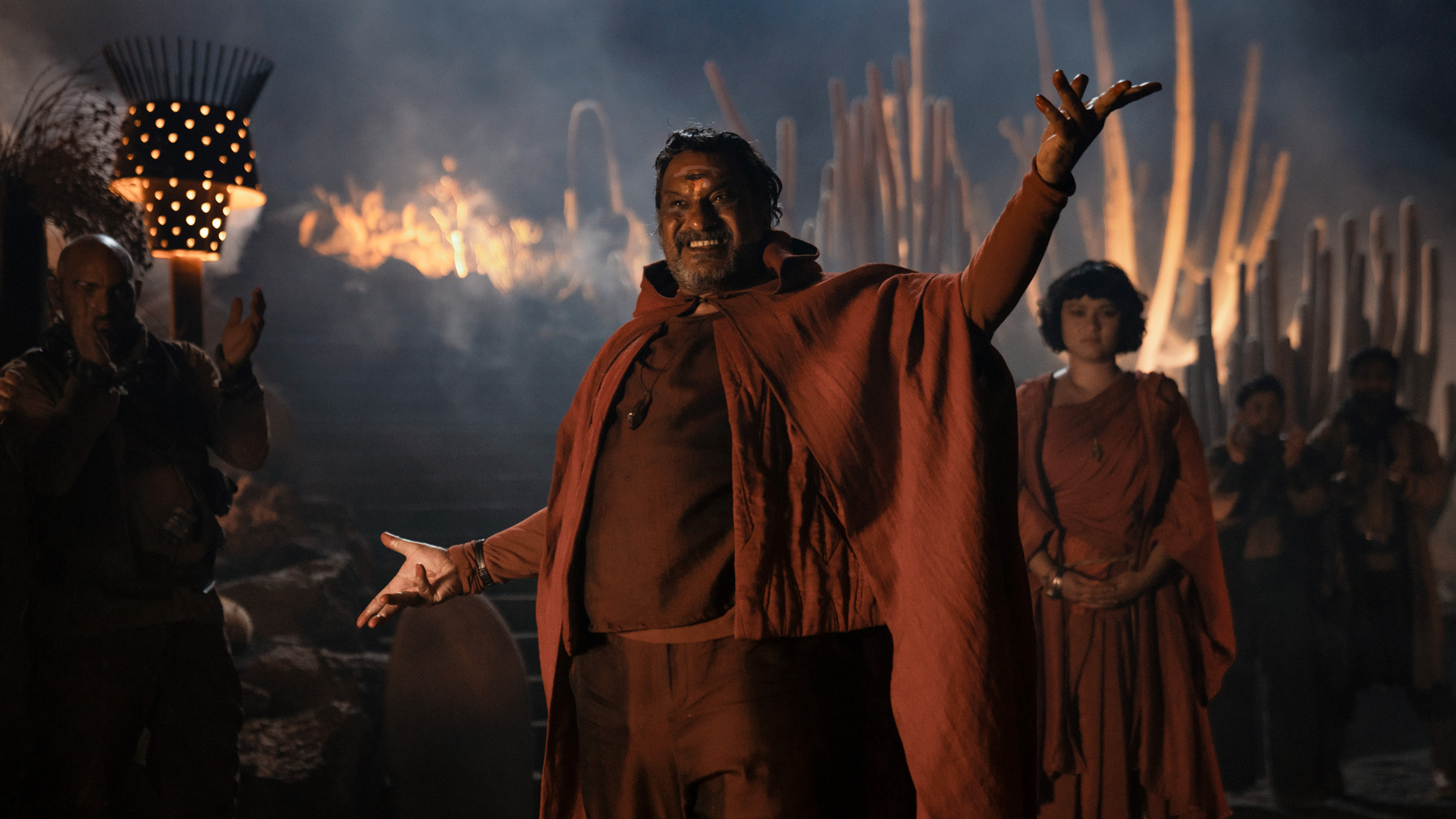
Hari may only exist as a digital construct, but his impact and legacy are still felt. Few individuals have been as spellbound by the math genius as Poly, the 148-year-old Church of Seldon leader who, as a child, witnessed Hari’s digital consciousness emerge from the Terminus-bound Vault in the season 1 finale. Although Poly still reveres Hari 138 years after that momentous occasion and spreads the Church’s gospel across the Outer Colonies, he’s not opposed to questioning his beliefs and role in the universe.
“Poly has the ability to communicate effectively and make people feel like they have a sense of purpose through Hari,” Ghir explains. “He has a sense of adventure about him and belief in this prophet, but he also understands psychohistory is primarily scientific in its anatomy. He’s also seen a lot of humanity’s development since he was 12, and what he’s witnessed has shaken his faith in Hari, the Church, and humanity as a whole. But that’s what makes him multidimensional. He maintains the facade for those he preaches to, but he also has vices that he believes are key to getting him through life when we first meet him.”
Empires always fall
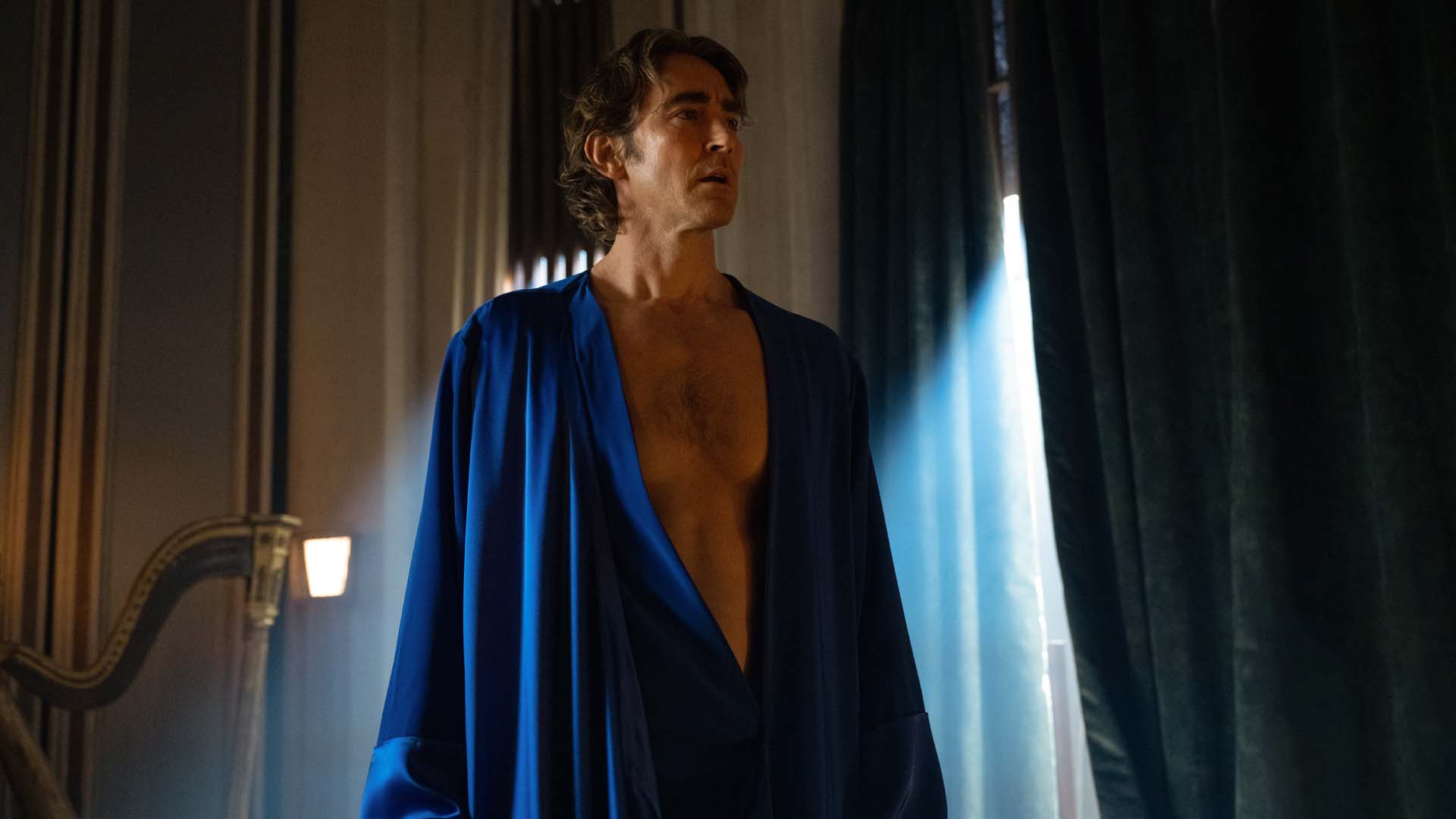
Where Empire is concerned, Brother Day is the fulcrum behind multiple changes within the regime’s hierarchy. Not content with wanting to disrupt the Cleonic bloodline by wedding Queen Sareth or instigating war with the Outer Colonies, Day’s no-strings-attached relationship with the Cleons’ robot advisor Eto Demerzel (Laura Birn) is perceived by many as an outrageous choice.
Day’s growing sense of autonomy, and the internal power struggle he creates within his clone-based genealogy, has the potential to jeopardize the Empire’s galactic iron grip. After portraying a version of the character who had to move and feel the same way as Dawn and Dusk in season 1, though, Pace was eager to examine Day’s evolving individualism and its impact on his former identity.
“Those two sides of him are in absolute conflict,” Pace reveals. “They don’t work. He lives in a structure that values sameness, and the individuality he feels, and the destiny he wants to write for himself, is a threat to that. But he believes he’s strong enough to pull it off and become the greatest Cleon, who ends the dynasty forever and returns the Empire to the ways before the genetic dynasty. Unfortunately for him, he runs into some pretty sly opposition.”
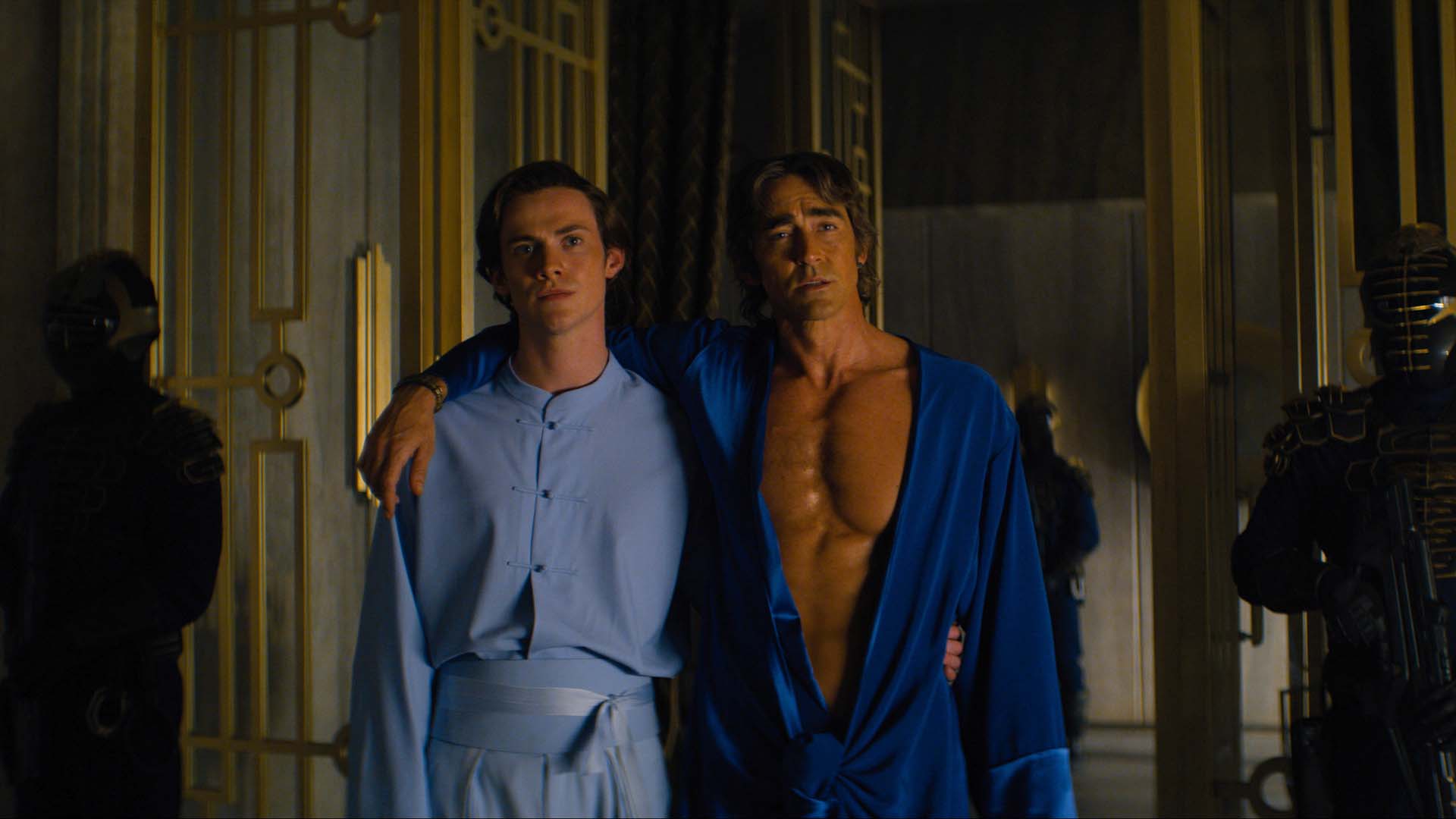
That hostility takes the form of Dawn, who sees Day and Sareth’s marriage and potential descendants as roadblocks to his own ascension to the throne. For Bilton, having the scope to play a more antagonistic role in season 2 was something he reveled sinking his teeth into.
There’s a level of trust that’s been broken
Jared Harris, Foundation actor
“Last season, his genetic difference was the threat to the dynasty,” Bilton says. “Now, the way he perceives the world has shifted to the other side. He’s more interested in staying in line, playing the game, and taking the middle throne until Sareth comes into the picture. She shakes up the status quo and Day reveals his plan to ruin the line of succession, so Dawn realizes his promotion will never happen. That worries Dawn as Day is physically stronger and more powerful, so Dawn’s head could be on the chopping block at any point. So, this season, we’ll see a Dawn who’s more stealthy, roguish, and plays in the shadows to survive.”
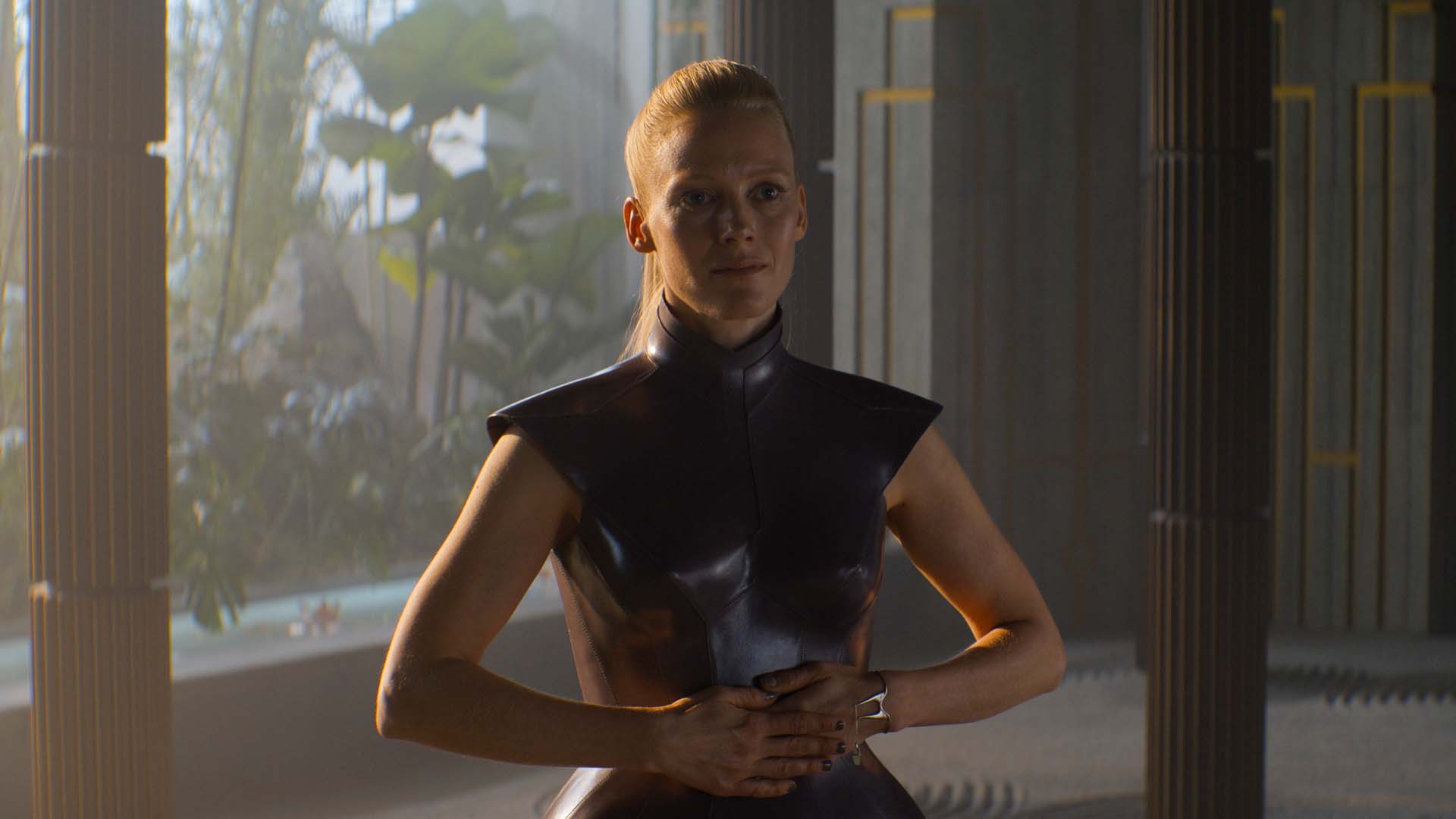
If you thought it was only the human characters struggling with bouts of existentialism, think again. Like Day and Dawn, Demerzel finds it difficult to navigate the turmoil within, particularly from the perspective of being an android who secretly longs to be free from her programmed role as the Cleons’ protector and advisor-in-chief.
“She’s lived for over 25,000 years by this point,” Birn says. “So there are things in her that precede her current programming, and she hasn’t forgotten anything before her enslavement. She has to obey what the Cleons tell her, so she’s loyal to the Empire and there’s a love that she has for the Cleons.
“But there’s also this inner conflict in her programming and sense of morality. Was that love programmed? How does she really feel about being controlled by these men with big egos? What would she do if she earned her freedom again? And, surprisingly, does she have her own sense of power over the clones? We explore all of that and more throughout season 2.”
It seems that viewers are in for a rollercoaster ride with Foundation season 2. If the show’s sophomore year eclipses that of its predecessor, a third season is sure to be in the offing, although Goyer and the cast declined to comment on speculation that Foundation has already been secretly renewed.
For now, fans can look forward to a stellar Game of Thrones-style season packed with sci-fi flair, all-action set-pieces, and plenty of thematic imagery. After a turbulent start to its life on Apple’s streaming platform, Foundation seems to have found its sense of identity in season 2, even if the characters inhabiting this universe haven’t yet. Keep this up and it’ll cement its place as one of the best Apple TV Plus shows ever made.
Foundation season 2’s first episode is available to watch right now on Apple TV Plus. New episodes will air weekly leading up to the season 2 finale on September 22.







